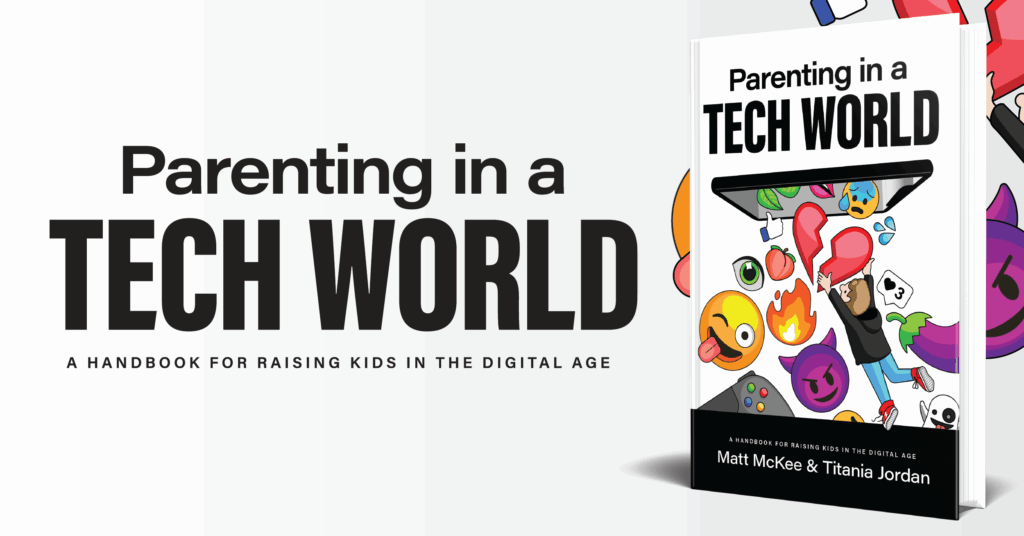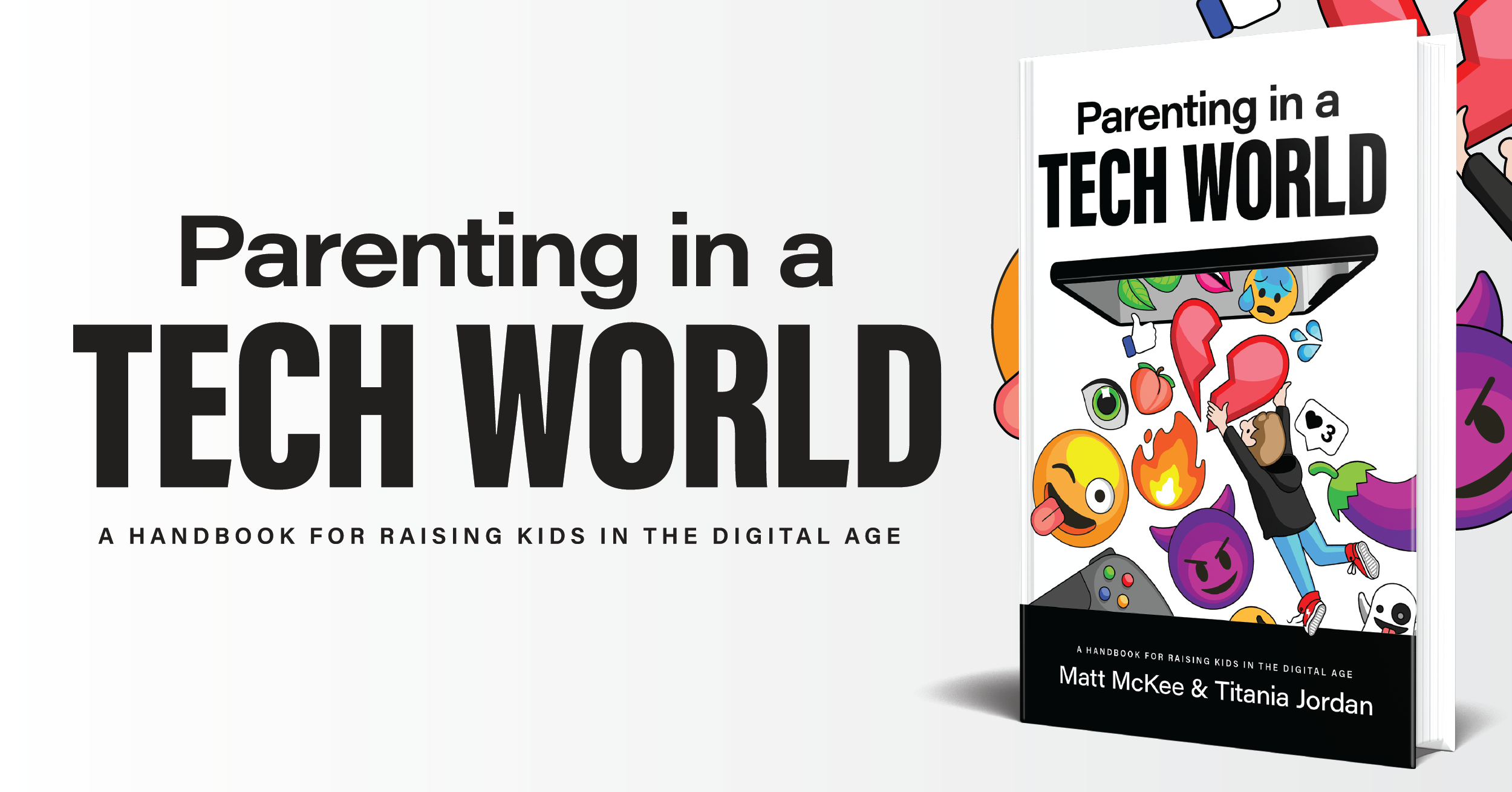
Parenting in a Tech World: Navigating the Digital Landscape with Your Children
The digital age has irrevocably transformed the landscape of childhood. Today’s children are digital natives, growing up surrounded by smartphones, tablets, and the internet. This presents unique challenges and opportunities for parents as they navigate the complexities of parenting in a tech world. How do we ensure our children benefit from technology’s advantages while protecting them from its potential harms? This article will explore the key considerations for parenting in a tech world, offering practical advice and strategies for raising responsible digital citizens.
Understanding the Digital Landscape
Before delving into specific strategies, it’s crucial to understand the digital environment our children inhabit. The internet offers a vast array of resources, from educational tools and creative platforms to social networking sites and online games. While these platforms can be enriching, they also expose children to potential risks such as cyberbullying, inappropriate content, and online predators.
The Allure of Screens
Screens are designed to be engaging, and children are particularly susceptible to their allure. The constant stimulation can lead to excessive screen time, which has been linked to various negative outcomes, including sleep disturbances, attention problems, and obesity. Parenting in a tech world requires a conscious effort to manage screen time and encourage alternative activities.
Social Media’s Influence
Social media platforms play a significant role in the lives of many children and teenagers. While these platforms can facilitate social connection and self-expression, they also present risks such as cyberbullying, social comparison, and privacy concerns. Parents need to be aware of the platforms their children are using and have open conversations about responsible online behavior.
Strategies for Effective Parenting in a Tech World
Successfully parenting in a tech world requires a proactive and balanced approach. Here are some key strategies to consider:
Establish Clear Boundaries and Rules
Setting clear boundaries for screen time and online activities is essential. This includes establishing time limits for different types of devices and apps, designating tech-free zones in the home (such as the dinner table or bedrooms), and implementing rules regarding online content and communication. Consistency is key to enforcing these boundaries effectively. Consider using parental control apps to help manage screen time and filter content.
Lead by Example
Children learn by observing their parents. If you spend excessive time on your phone or computer, your children are more likely to do the same. Model healthy tech habits by limiting your own screen time, engaging in offline activities, and demonstrating responsible online behavior. Show them that there’s more to life than just screens. [See also: Digital Detox Strategies for Families]
Educate Your Children About Online Safety
Teach your children about the potential risks of the internet, including cyberbullying, online predators, and phishing scams. Explain the importance of protecting their personal information and being cautious about who they interact with online. Encourage them to come to you if they encounter anything that makes them feel uncomfortable or unsafe. Open and honest communication is vital for parenting in a tech world.
Foster Critical Thinking Skills
In the age of misinformation, it’s crucial to equip children with the skills to critically evaluate online information. Teach them how to identify fake news, recognize biased sources, and verify information before sharing it. Encourage them to question what they see online and to develop a healthy skepticism towards unverified claims. Parenting in a tech world means fostering media literacy.
Encourage Offline Activities
Balance screen time with plenty of offline activities, such as playing outdoors, reading books, engaging in hobbies, and spending time with family and friends. These activities promote physical and mental well-being and help children develop social skills and interests outside of the digital world. Make sure they have opportunities to explore their creativity and engage in activities that don’t involve screens. Parenting in a tech world requires a conscious effort to promote balance.
Monitor Online Activity (Respectfully)
While respecting your children’s privacy is important, it’s also necessary to monitor their online activity to ensure their safety. This doesn’t mean snooping on their every move, but rather being aware of the websites they visit, the apps they use, and the people they interact with online. Use parental control tools to track their activity and set appropriate boundaries. Have open conversations about your monitoring practices and explain why you’re doing it. [See also: Best Parental Control Apps for 2024]
Stay Informed About Emerging Technologies
The digital landscape is constantly evolving, so it’s important to stay informed about the latest technologies and trends. This includes understanding new social media platforms, online games, and digital devices. By staying informed, you can better understand the risks and opportunities associated with these technologies and provide your children with informed guidance. Parenting in a tech world requires continuous learning.
Promote Digital Citizenship
Teach your children about responsible online behavior and the importance of treating others with respect online. Explain the consequences of cyberbullying, online harassment, and spreading misinformation. Encourage them to be positive and supportive online and to use technology to connect with others in meaningful ways. Parenting in a tech world involves fostering ethical online behavior.
Create Tech-Free Zones and Times
Designate specific areas and times in your home as tech-free zones. This could include the dinner table, bedrooms, or specific hours of the day. This helps create opportunities for face-to-face interaction and encourages family bonding. Tech-free zones can also help reduce screen time and promote better sleep habits. Parenting in a tech world requires intentional disconnection.
Encourage Open Communication
Create a safe and supportive environment where your children feel comfortable talking to you about their online experiences. Encourage them to come to you if they encounter anything that makes them feel uncomfortable, unsafe, or confused. Listen to their concerns without judgment and offer guidance and support. Open communication is essential for building trust and fostering a healthy relationship with your children. This is critical for successful parenting in a tech world.
Address Cyberbullying Promptly
Cyberbullying is a serious issue that can have devastating consequences for victims. If your child is being cyberbullied, take immediate action to stop the harassment. This may involve reporting the incident to the social media platform or the school. Support your child emotionally and help them develop strategies for coping with cyberbullying. Teach them how to block or report bullies and to seek help from trusted adults. Parenting in a tech world demands vigilance against cyberbullying.
Be Aware of Online Predators
Online predators are individuals who use the internet to groom and exploit children. Be aware of the warning signs of online grooming and teach your children how to protect themselves from predators. This includes never sharing personal information with strangers online, never meeting up with someone they’ve met online without a trusted adult, and being cautious about accepting friend requests from people they don’t know. Parenting in a tech world necessitates awareness of online predators.
Teach Them About Privacy Settings
Ensure your children understand the importance of privacy settings on social media platforms and other online services. Teach them how to adjust their privacy settings to control who can see their posts, photos, and personal information. Explain the potential consequences of sharing too much information online and encourage them to be mindful of their digital footprint. Parenting in a tech world includes educating about privacy.
Use Parental Control Software
Parental control software can be a valuable tool for managing your children’s online activity. These programs allow you to monitor their internet usage, block inappropriate content, set time limits for specific apps and websites, and track their location. Choose a parental control program that meets your specific needs and preferences. Parenting in a tech world often involves leveraging technology for safety.
Regularly Review and Update Strategies
As technology evolves, your parenting strategies will need to evolve as well. Regularly review and update your rules, boundaries, and monitoring practices to ensure they remain effective. Stay informed about the latest trends and risks in the digital world and adjust your approach accordingly. Parenting in a tech world is an ongoing process of adaptation and learning.
The Future of Parenting in a Tech World
Parenting in a tech world is an ongoing journey that requires adaptability, awareness, and a commitment to fostering responsible digital citizenship. By embracing technology’s potential while mitigating its risks, parents can empower their children to thrive in the digital age. The key is to find a balance between allowing children to explore the benefits of technology and protecting them from its potential harms. Open communication, clear boundaries, and a proactive approach are essential for navigating the complexities of parenting in a tech world and preparing children for a successful and fulfilling future.
Ultimately, the goal of parenting in a tech world is to raise well-rounded individuals who can use technology responsibly and ethically. By focusing on critical thinking, digital literacy, and ethical online behavior, parents can equip their children with the skills they need to navigate the digital landscape and contribute positively to society.

